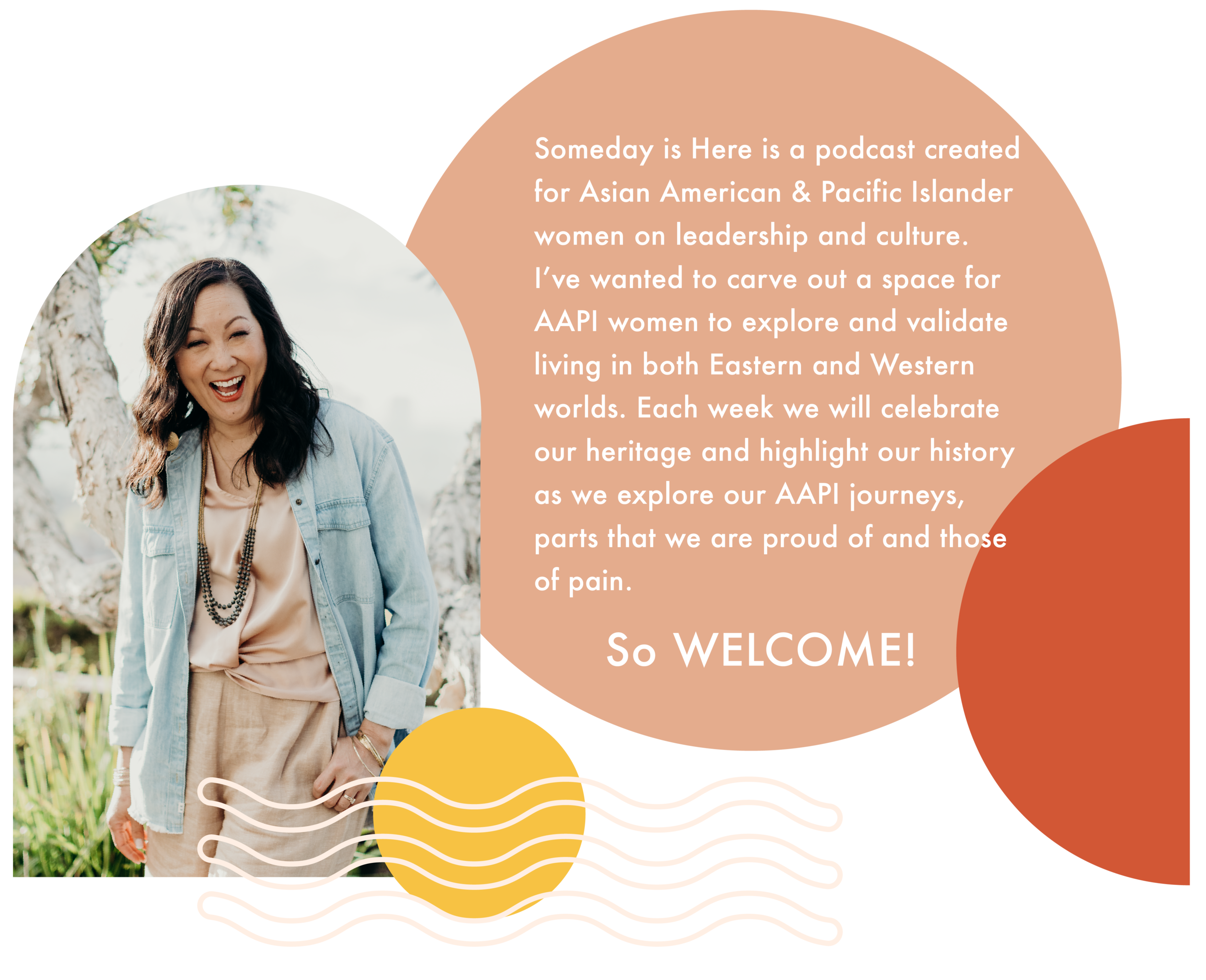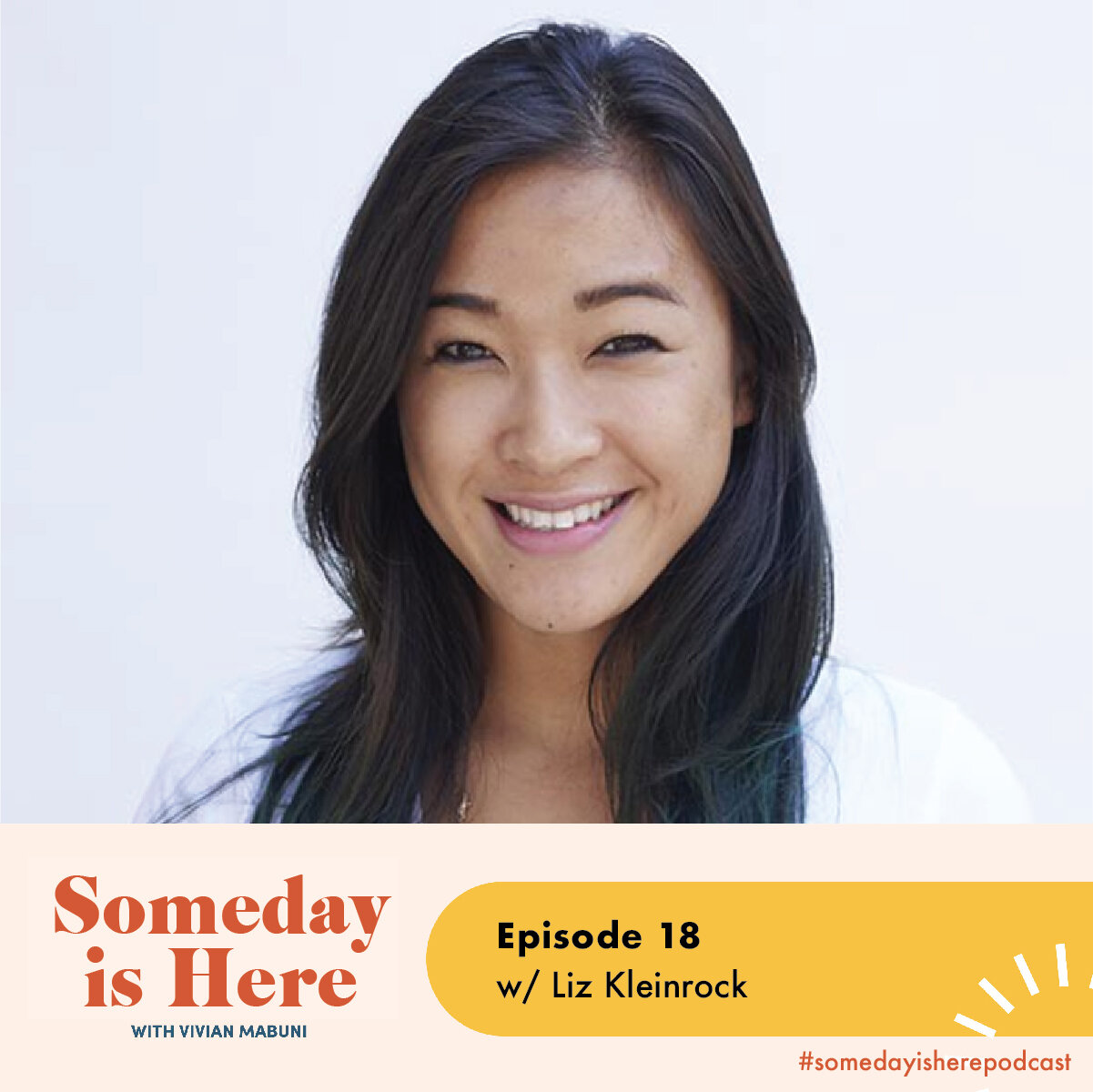Episode 18 - Liz Kleinrock
EPISODE 18 W/ LIZ KLEINROCK
This week’s episode I interview Liz Kleinrock @teachandtransform. Liz is a Korean American adoptee and shares with us her story of learning to embrace her ethnic heritage as well as some of the challenges of feeling imposter syndrome of not being seen as a “real Asian.” An award winning teacher, writer, trainer and 2019 TED talk presenter, Liz shares excellent principles of leadership and how conversations around diversity these days are not diverse unless the voices and experiences of Asian Americans are included. I so enjoyed my conversation with Liz and can’t wait for you to hear our conversation!
LEARN MORE ABOUT LIZ
https://www.teachandtransform.org/
Instagram: @teachandtransform
FAVORITE ASIAN COMFORT FOOD
Soondubu (Tofu soup)
Liz Kleinrock is an anti-bias and anti-racist educator of both children and adults, and creates curricular content for K-12 students around issues of diversity, equity, and inclusion, specializing in designing engaging and accessible units of study for all ages of learners. She began her career in education as an AmeriCorps volunteer teacher in Oakland, California in 2009, and has since served as both a classroom educator and diversity coordinator in Los Angeles, California. Liz also works with schools and districts throughout the United States to develop workshops and trainings for adults that support culturally responsive practices that fit the needs of specific communities. In 2018, Liz received the Teaching Tolerance Award for Excellence in Teaching, and her lessons on teaching consent and personal boundaries to students have gained international media attention. Liz has written articles for numerous publications on destigmatizing privilege, trauma informed teaching, and cultivating relationships with students and families. Most recently, Liz is proud to share her 2019 TED Talk, “How to teach kids to talk about taboo topics” on building foundations of equity with young learners, and is working on her first book with Heinemann Publishing.
Liz can be reached through her website, www.teachandtransform.org, or through her Instagram @teachandtransform
LEADERSHIP LESSON
Don’t minimize what you’re experiencing, but you’re going to exhaust yourself if all your energy is going towards something you cannot control.
DID YOU KNOW?
Today Asian Americans are the fastest growing population, and classrooms are more diverse than they’ve ever been. However, Asian American educators make up less than 2% of teachers and Asian American history is widely left out of US History books. One of the first individuals to make changes to both those statistics was Alice Fong Yu.
Alice Fong Yu was San Francisco’s first Aisan American school teacher. Born on March 2, 1905, her family owned the Omega Mine in Nevada County, California where they were one of two Chinese families living in the town. She was the first of her siblings to graduate high school and made it her personal goal to become a public school teacher. She was hired as San Francisco’s first Chinese public school teacher in 1926 at Commodore Stockton Elementary School where she taught for 34 years. Her roles included counselor, administrator, nurse and clerk--writing and translating Chinese. In an interview towards the end of her teaching career, she said she “sought to show her students how to manage a dual culture, not only appreciating their ancient Chinese culture but also learning how to be modern and progressive.”
With the birth of her son, who was born with Cerebral palsy, she went back to school at 57 and received credentials in special education and speech therapy from UC Berkeley. Along with working with those with speech disabilities, she arranged educational trips to China, and established the country’s first Chinese-immersion program. Her contributions to education remain influential even today. She was awarded the Phoebe Apperson Heart Medallion as one of San Francisco’s Distinguished Ten for her broad spectrum of contribution and accomplishments, as well as courage for pursuing her dreams in a hostile and xenophobic environment.

















